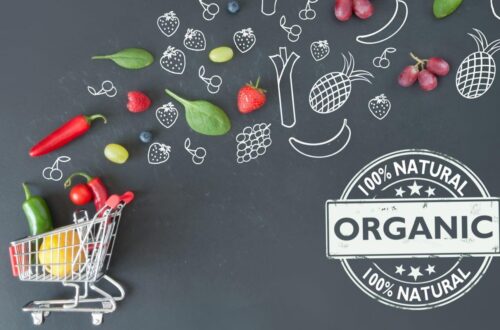Delivering high-quality, certified organic products from the heartlands of India to global markets requires more than just good intentions; it demands a meticulously managed, transparent, and robust supply chain. At Radiance Overseas, our organic supply chain is the operational backbone that ensures the integrity, quality, and timely delivery our international partners rely on. From fostering strong relationships with farmers to navigating complex international logistics, every step is carefully orchestrated. Let’s take a look behind the scenes at how Radiance Overseas manages its farm-to-export journey.
Stage 1: Farmer Partnerships & Sourcing
Everything begins at the farm. Our supply chain is rooted in strong, ethical relationships with certified organic farmers and Farmer Producer Organizations (FPOs) across various regions of India.
- Selection & Vetting: We carefully select farming partners based on their commitment to organic practices, land suitability, and certification status (NPOP, and readiness for USDA NOP/EU Organic where applicable).
- Certification Support & ICS: We work closely with farmers to ensure they understand and maintain certification requirements. For farmer groups, we help establish and manage Internal Control Systems (ICS) to ensure collective compliance and facilitate group certification.
- Capacity Building: We often invest in training programs covering organic cultivation techniques, soil health management, pest control, post-harvest handling, and documentation.
- Fair Pricing Agreements: We believe in ensuring farmers receive a fair price for their organic produce, fostering long-term, sustainable partnerships.
- Crop Planning: Based on market forecasts and client orders, we engage in indicative planning with our farmer network to ensure adequate supply of specific organic commodities.
Stage 2: Procurement & Aggregation
Once the organic crops are harvested, the crucial steps of procurement and aggregation begin, always maintaining strict segregation.
- Harvest Monitoring: Ensuring proper harvesting techniques are used to maintain quality.
- Farm-Gate Procurement: Collecting produce directly from farms or designated collection points, ensuring immediate and accurate record-keeping (farmer details, quantity, lot identification).
- Quality Inspection (Initial): Performing initial visual quality checks and sampling at the point of collection.
- Segregated Transport: Using dedicated vehicles or ensuring thorough cleaning protocols are followed when transporting organic produce to prevent any cross-contamination with conventional goods.
- Aggregation Centers: Bringing produce from multiple farms (within a certified group) to designated aggregation points or directly to certified processing units, maintaining lot integrity throughout.
Stage 3: Certified Organic Processing & Quality Control
Whether it’s simple cleaning and grading or more complex milling, grinding, or pulping, processing is handled only in certified organic facilities.
- Partner Facility Audits: We regularly audit our partner processing units to ensure they strictly adhere to NPOP, USDA NOP, and/or EU Organic processing standards.
- Dedicated Lines/Time Slots: Ensuring organic products are processed on dedicated lines or after thorough cleaning of shared lines, with documented clean-down procedures.
- Input Control: Verifying that only permitted cleaning agents or processing aids (if any) are used as per organic standards.
- In-Process QA Checks: Monitoring quality parameters during processing (e.g., moisture levels, foreign matter removal, particle size for powders).
- Finished Goods Testing: Systematic sampling and testing of finished batches at accredited labs for pesticide residues, heavy metals, microbial counts, aflatoxins, GMOs, and other relevant parameters based on product and destination market.
Stage 4: Packaging & Warehousing
Proper packaging and storage are vital to maintain product quality and organic integrity until shipment.
- Approved Packaging: Using food-grade packaging materials suitable for organic products (e.g., new jute bags, food-grade polypropylene bags, specific liners) that comply with regulations and prevent contamination.
- Accurate Labeling: Ensuring all bags or containers are correctly labeled with product name, organic status, certification details, lot numbers, weight, and other required information as per NPOP and destination market rules.
- Segregated Warehousing: Storing finished organic goods in dedicated, clearly marked areas within certified warehouses to prevent any mix-ups or contamination. Pest control in warehouses uses only organic-approved methods.
- Inventory Management: Maintaining accurate inventory records linked to lot numbers for complete traceability.
Stage 5: Export Logistics & Documentation
The final leg involves navigating the complexities of international shipping and documentation.
- Booking & Containerization: Selecting reliable shipping lines, booking containers, and overseeing the stuffing process to ensure product safety and container integrity. Using food-grade containers.
- Export Documentation: Meticulously preparing all required documents, including commercial invoices, packing lists, bills of lading, certificates of origin, phytosanitary certificates (if required), and crucial organic transaction certificates (like COI via TRACES NT for EU).
- Customs Clearance: Coordinating with customs house agents (CHAs) for smooth export customs clearance in India.
- Shipment Tracking: Monitoring the shipment’s journey and providing updates to the client.
- Import Compliance Support: Providing necessary documentation and information to assist the importer with customs clearance in the destination country.
Technology Integration
Throughout this chain, Radiance Overseas leverages technology for efficiency and transparency. This includes using ERP systems for inventory and order management, digital platforms for traceability, and communication tools for seamless coordination between internal teams, farmers, processors, logistics providers, and clients.
Conclusion: A Chain Built on Trust
Radiance Overseas’ organic supply chain is a dynamic, integrated system designed for one purpose: to deliver high-quality, certified organic products from India reliably and transparently. It’s a chain built on strong partnerships, rigorous controls, deep expertise, and an unwavering commitment to organic integrity. By managing each step diligently, we provide our global partners with the confidence they need to source organic excellence from India.

